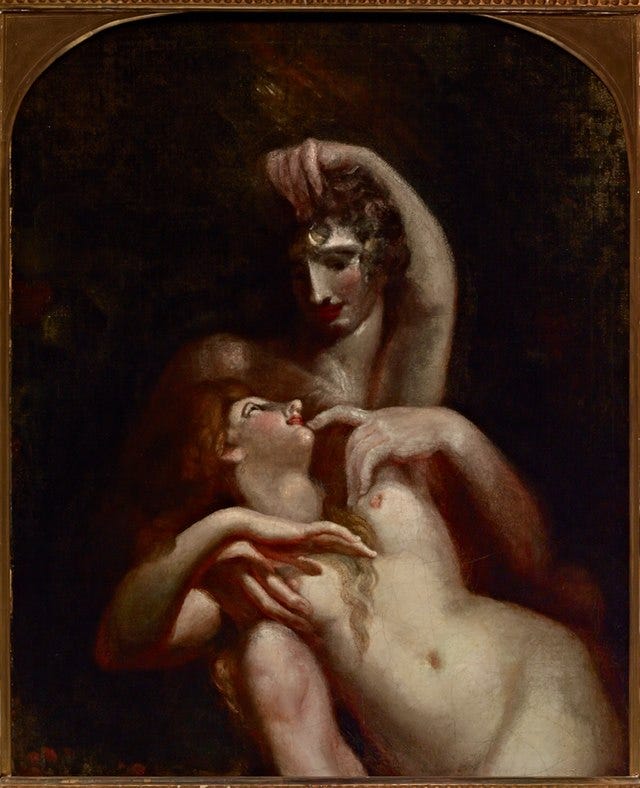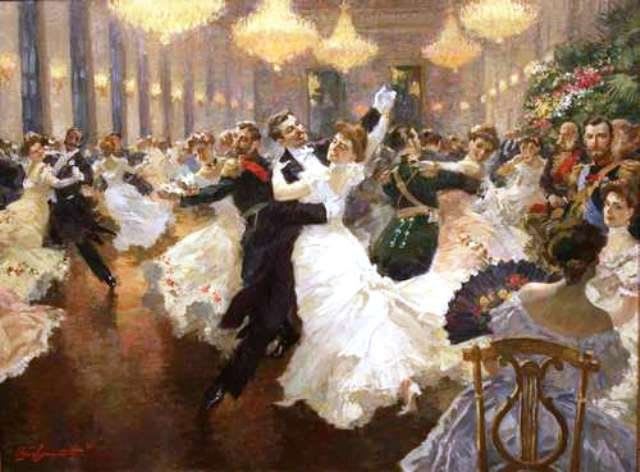What I Called Innocence:
A moment of terrible grace
In my Mar. 27 post (Female Hypergamy: Which Way Is Up?) I countered, or complicated, the idea of hypergamy (the act of of marrying or coupling up into a higher economic/social bracket) with the following thoughts:
“…love is also about grace that one doesn’t earn or make happen; a kind of inexplicable moment or moments where those quantifiables recede and you are aware of another person in a more raw and essential way…The word “innocence” comes to me, in the amoral sense that animals are innocent; so does the word “faceted,” as in a faceted, intuitive understanding of the other that allows intimates to see and accept what would be contradictory and embarrassing in what we call normal life but which is pure and harmonious in the fleeting moment of grace. Perhaps it is a shared, barely glimpsed memory of primary innocence that we all have at birth but which can get increasingly obscured, distorted or even crushed as we battle through the world. It occurs to me that the accumulation of status, money, strength and cultivated beauty are in part a convoluted effort to shield and create a sanctuary for that sacred innocence...”
I wanted to illustrate that idea with an excerpt from the novel Anna Karenina, which I read some years back, and which I thought of while writing that segment of the hypergamy post. Just in case there are any of you who don’t know the story (in book or movie or half-done homework assignment form), young, vibrant Anna is married to old drab Alexis; it is a hypergamous union arranged by Anna’s aunt who wanted to make sure the girl was taken care of. Anna is a dutiful, charming wife and mother until she falls in love with a young cavalry officer (Vronsky) after an erotically charged dance and, constitutionally unable to abide by the conventions of marital deceit, becomes socially outcast and slowly destroyed, along with those closest to her.
Keep reading with a 7-day free trial
Subscribe to Out of It to keep reading this post and get 7 days of free access to the full post archives.



